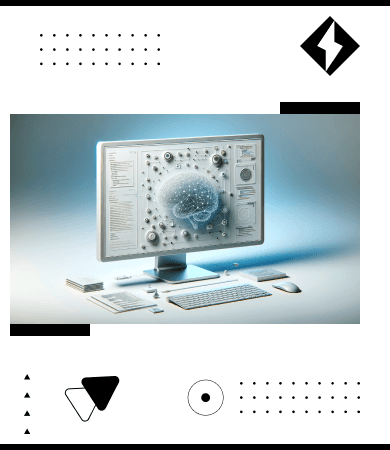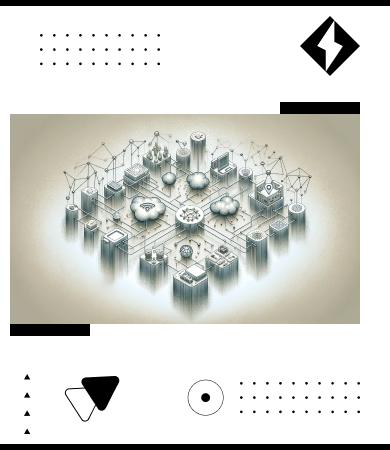Support center +91 97257 89197
Web DevelopmentJune 4, 2024
Quantum Computing: What Web Developers Need to Know

Introduction to Quantum Computing
Quantum computing is an emerging field that promises to revolutionize various industries by leveraging the principles of quantum mechanics. Unlike classical computing, which relies on bits as the smallest unit of data, quantum computing uses qubits. Qubits can exist in multiple states simultaneously, thanks to the principles of superposition and entanglement, allowing quantum computers to perform complex calculations at unprecedented speeds. As quantum computing continues to advance, it is crucial for web developers to understand its potential impact on web development and prepare for the upcoming changes.
Key Concepts in Quantum Computing
Qubits and Superposition
In classical computing, bits represent data as either 0 or 1. In contrast, qubits can represent both 0 and 1 simultaneously, a property known as superposition. This allows quantum computers to process a vast amount of data at once, significantly speeding up computations.
Entanglement and Quantum Gates
Entanglement is another fundamental principle of quantum mechanics, where two qubits become interconnected, and the state of one qubit can instantly affect the state of another, regardless of the distance between them. Quantum gates manipulate qubits and entanglement, enabling quantum computers to perform complex operations efficiently.
Quantum Algorithms and Their Significance
Quantum algorithms take advantage of these principles to solve problems more efficiently than classical algorithms. Notable examples include Shor's algorithm for factoring large numbers and Grover's algorithm for searching unsorted databases. These algorithms have profound implications for fields such as cryptography, optimization, and artificial intelligence.
Current State of Quantum Computing
Leading Companies and Research Institutions
Several tech giants and research institutions are at the forefront of quantum computing research. IBM, Google, Microsoft, and Intel are making significant strides in developing quantum hardware and software. Academic institutions like MIT, Caltech, and the University of Oxford are also conducting groundbreaking research in this field.
Recent Breakthroughs and Advancements
Recent advancements include Google's announcement of achieving quantum supremacy, where their quantum computer performed a specific task faster than the most powerful classical computers. IBM has also launched its Quantum Experience platform, allowing developers to experiment with quantum computing through the cloud. These milestones indicate rapid progress and a growing interest in quantum technologies.
Current Limitations and Challenges
Despite the exciting advancements, quantum computing faces several challenges. Qubits are highly susceptible to errors due to environmental noise and require extremely low temperatures to maintain stability. Additionally, the development of quantum software and algorithms is still in its infancy. Researchers are actively working to overcome these hurdles and make quantum computing more practical and accessible.
Quantum Computing and Web Development
Potential Impact on Encryption and Security
Quantum computing poses both opportunities and threats to web development, particularly in encryption and security. Quantum computers can potentially break widely used cryptographic protocols, such as RSA and ECC, by efficiently factoring large numbers. This has led to the development of quantum-resistant encryption algorithms to safeguard data against future quantum attacks.
Quantum Computing for Database Management and Search Algorithms
Quantum algorithms can revolutionize database management and search operations. Grover's algorithm, for instance, can search unsorted databases quadratically faster than classical algorithms. This could lead to more efficient data retrieval and processing, enhancing the performance of web applications.
How Quantum Computing Could Change Backend Processes
Quantum computing could significantly improve backend processes by optimizing complex tasks like routing, scheduling, and machine learning. Quantum machine learning algorithms can process large datasets faster, providing more accurate predictions and insights. Web developers may need to adapt their backend systems to integrate these quantum-enhanced capabilities.
Learning Quantum Computing as a Web Developer
Recommended Resources and Courses
For web developers interested in exploring quantum computing, several resources and courses are available. Platforms like Coursera, edX, and Udacity offer introductory courses on quantum mechanics and quantum computing. Additionally, IBM's Quantum Experience and Microsoft's Quantum Development Kit provide hands-on experience with quantum programming.
Practical Steps to Get Started with Quantum Programming
To begin learning quantum programming, web developers should start with the basics of quantum mechanics and familiarize themselves with quantum gates and algorithms. Online tutorials and documentation from platforms like Qiskit (IBM) and Q# (Microsoft) can guide beginners through the initial steps of quantum programming.
Tools and Platforms for Quantum Computing
Several tools and platforms are available for experimenting with quantum computing. IBM Q Experience offers cloud-based access to real quantum processors, while Microsoft's Quantum Development Kit provides a comprehensive environment for developing quantum applications. These tools allow web developers to write and test quantum code, facilitating a deeper understanding of this emerging technology.
Future Outlook
Predictions for the Next Decade
The next decade is likely to witness significant advancements in quantum computing, with increasing qubit counts, improved error correction methods, and more practical applications. Quantum computing could become an integral part of various industries, including finance, healthcare, and logistics.
How Web Developers Can Stay Updated
Web developers can stay updated on quantum computing advancements by following industry news, participating in online communities, and attending conferences and webinars. Engaging with the quantum computing community can provide valuable insights and opportunities for collaboration.
Final Thoughts on Integrating Quantum Computing into Web Development
While quantum computing is still in its early stages, its potential impact on web development is undeniable. By understanding the basics of quantum computing and staying informed about the latest advancements, web developers can prepare for the upcoming changes and leverage quantum technologies to enhance their applications.
TLDR
Quantum computing is poised to revolutionize many fields, including web development. This article explores the basics of quantum computing, its current state, and potential impacts on web development. Learn how web developers can prepare for this technological shift and stay updated with practical resources and predictions for the future.
FAQs
Quantum computing leverages quantum mechanics to perform computations at significantly higher speeds than classical computers. It uses qubits, which can represent and store more complex data.
While classical computers use bits as the smallest unit of data (0 or 1), quantum computers use qubits, which can exist in multiple states simultaneously (superposition). This allows for more complex and faster computations.
Quantum computing can potentially revolutionize encryption, data processing, and optimization algorithms, which are fundamental aspects of web development. Staying informed helps developers anticipate and integrate new advancements.
Numerous online courses, tutorials, and platforms like IBM Q Experience and Microsoft Quantum Development Kit offer practical insights and hands-on experience for beginners and experienced developers alike.
Quantum computing is still in its early stages, facing challenges like error rates, qubit stability, and high costs. However, ongoing research and advancements are gradually addressing these issues.
Work with us







